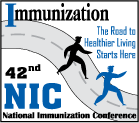
|
|
CDC NIP/NIC Home Page
|
Tuesday, March 18, 2008
175
Fighting Liver Cancer Disparities in the Medically Underserved Asian Community
Steven Lin, Elizabeth Chao, Hyunseung Kang, Hanh Nguyen, Anh Tan, Andrew Vu, and Nahid Yakuby. Asian Liver Center, Stanford University School of Medicine, 300 Pasteur Drive, H3680, Stanford, CA, USA
Learning Objectives for this Presentation:
By the end of the presentation participants will be able to: 1) Identify a silent killer in the Asian community, 2) Apply routine hepatitis B screening of all foreign-born Asian adults.
Background:
One of the greatest health disparities between Asian and Pacific Islanders (APIs) and their white counterparts is liver cancer. The disparity in liver cancer incidence and mortality is largely due to the high prevalence of chronic hepatitis B virus (HBV) infection among APIs. San Jose, California has the third largest API population in the U.S., and 1 in 10 APIs has chronic hepatitis B. Left undiagnosed, 1 in 4 of them will die from cirrhosis or liver cancer.
Setting:
Safety-net clinic in San Jose
Population:
API immigrants with low income, no health insurance, and low English proficiency
Project Description:
Hep B Free Clinic is a medical student-run program to provide: 1) comprehensive HBV education with medical interpreting, 2) screening, 3) vaccinations, 4) liver ultrasounds, 5) referrals for advanced care and triphasic CT scans, and 6) antiviral treatment. We address the unmet health care needs of immigrants with limited resources and English proficiency by offering free or low-cost services and education in a culturally appropriate manner.
Results/Lessons Learned:
Within twelve days of clinic operation, we had 213 total patient visits. Of the 158 patients screened, the age range was 19-79 years. Most of our patients (96%) were born in Asia or the Pacific Islands, and 95% had no health insurance. Of those screened, 1 in 5 (19%) was chronically infected with HBV, and 1 in 4 (26%) lacked protective antibodies against HBV. Patients were provided with culturally appropriate information to prevent disease transmission and proper medical management to reduce their risk of liver disease. We believe that the screening of all foreign-born API adults should become a routine practice for healthcare providers that serve this population.
See more of Exhibit and Poster Viewing Session (and Break)
See more of The 42nd National Immunization Conference (NIC)
See more of The 42nd National Immunization Conference (NIC)